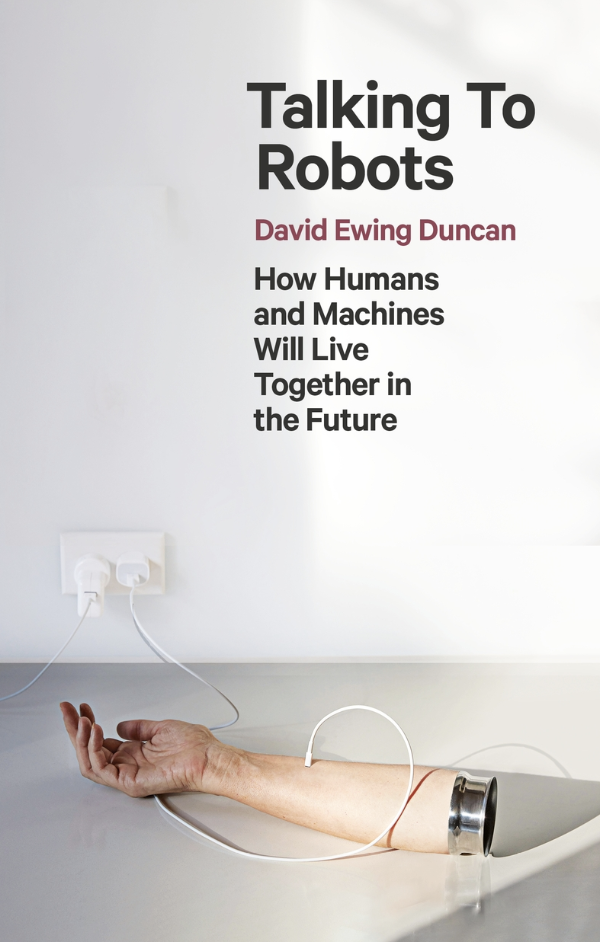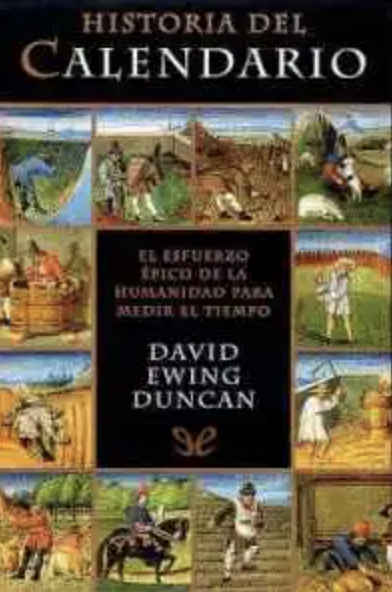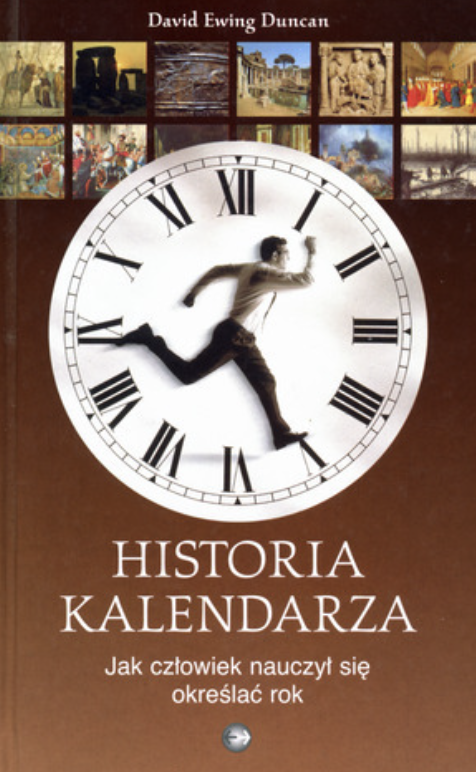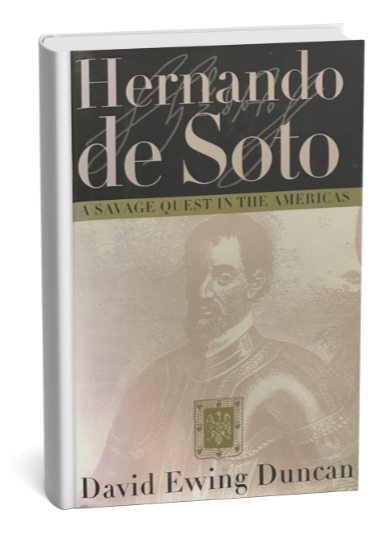Books By David Ewing Duncan
Microlands
The Future of Life on Earth (and why it’s smaller than you think)
by J. Craig Venter and David Ewing Duncan
You’ve heard of the human microbiome. Did you know the Earth has one, too? In total, our oceans, soil, sky, plants, and animals are home to 5x10(30) (five million trillion trillion) microbes that are the true masters of our planet. This book is an epic science and adventure story of famed geneticist Craig Venter’s voyages from 2003-2018 in his 100-foot sailing and research vessel, Sorcerer II, that collected microbes all over the world—and revolutionized how we view this tiny, invisible world. Microlands also details how humans and climate change are altering the Earth’s microbiome in ways that are not healthy for us or for the ecosystem we live in. (Harvard U Press/ LittleBrownUK, 2024)
“...brimming with the excitement of discovery…will undoubtedly shape our understanding of the global ecosystem for decades to come.”
– Siddhartha Mukherjee,
Pulitzer Prize-winning author of The Emperor of All MaladiesRead my essay in Vanity Fair : “The Next Climate Change Calamity?: We’re Ruining the Microbiome, According to Human-Genome-Pioneer Craig Venter”
And my commentary in Scientific American: “Carbon in the Oceans Is Altering the Micro-Fabric of Life”
US edition title: The Voyage of Sorcerer II—Order Here
Talking to Robots
Tales from Our Human Robot Futures
24 robots and AI systems that are being built or dreamed about in the present – including Teddy Bot, Doc Bot, Warrior Bot, Facebook Bot, Politician Bot, Sex Bot, Matrix Bot, Immortal Me Bot, and God Bot. What’s different is that each bot is described by a narrator who is living in the future. He or she (or it?) knows how things turn out for each bot, with some of these future scenarios turning out great, others not so much. (Dutton, 2019)
Featured: Today Show, Time, NPR, USA Today, Bloomberg, and more
Video of David on PBS Newshour
Excerpted in Inc. Magazine
“...intensely readable, downright terrifying, and surprisingly uplifting new book…”
- Vanity Fair“...it’s the future that award-winning journalist David Ewing Duncan explores in this riveting read…”
- Time MagazineProfile and Book Review in Vanity Fair
David Ewing Duncan Is Ready for the Robot Revolution
In Talking to Robots, his new collection of short stories based on deep reporting, the science writer addresses our technological anxieties.
By Mary Alice Miller
Masterminds
Genius, DNA, and the Quest to Rewrite Life
A Best Book of the Year – San Francisco Chronicle
A depiction of cutting-edge science and its profound implications told through the personalities of scientists who are rewriting life on earth.
Throughout history, the outsized personalities of scientists have astonished us with their brilliance and audacity. From Galileo to Jonas Salk, they push society into new realms with great leaps of inventiveness and originality, providing us with everything from the wheel to rocket ships and penicillin. Today's masterminds in biotechnology promise lifespans up to 400 years; cures for cancer; and an end to pollution. But these masterminds could also produce unintended nightmares – bioengineered lifeforms that run amuck, bioweapons, social upheavals. Which will it be: heaven or hell, or both, or neither? (HarperCollins, 2005)
NPR Interview: Morning Edition with Renée Montaigne
“Rather than speculating about the future in a more conventional way, David Ewing Duncan, in his charming and often amusing book uses instead the personalities and thoughts of a coterie of exceptional geneticists.”
— Sunday Telegraph, Adrian Woolfson“200 year old people? Emails sent by brain waves? [Duncan] sketches the possible future.”
— USA Weekend“...vivid, memorable portrayals of the scientists working on biology's most fascinating frontiers.”
– James Fallows, AtlanticUK Edition (HarperCollins)
Experimental Man
What one man’s body reveals about his future, your health, and our toxic world
David Ewing Duncan takes the ultimate high-tech medical exam, investigating the future impact of what's hidden deep inside all of us. Duncan takes "guinea pig" journalism to the cutting edge of science, building on award-winning articles he wrote for Wired and National Geographic, in which he was tested for hundreds of genes and chemicals associated with disease, emotions, and other traits. Expanding on these tests, he examines his genes, environment, brain, and body, collected terabytes of personal health data on himself and exploring what they reveal about his and his family's future health, traits, and ancestry, as well as the profound impact of this new self-knowledge on society, families, individuals, and what it means to be human. (Wiley, 2009)
"Twenty years from now David Duncan's pioneering grand experiment will become commonplace…It's not often you get to read a book mailed back from the future, but the one you hold is just that: news from the year 2029."
— Kevin Kelly, Wired“...brilliant view of what cutting-edge medical technology can - and cannot - tell us about our future health."
— Clive Cookson, Financial Times"David Ewing Duncan has come up with simple but elegant conceit that yields a rich trove of information and insight about how we live now."
– Michael Pollan“… Duncan shows what good reporting and storytelling can do. His narrative method… educates and entertains.”
– San Francisco ChronicleRelated Articles by David
"DNA as Destiny", Wired
"The Pollution Within", National Geographic
“Experimental Man”, Discover Magazine, Part 1: Genetics and the Environment; Part 2: Inside the Human Brain
Selected Talks and Media
“Experimental Man: Predicting My Future and Yours”, TEDx Berkeley
“Experimental Man: The Truth Behind Genetic Testing”, CUNY and the NY Academy of Sciences, New York
Experimental Man Segment and Interview, Today Show
“My Life as a Human Guinea Pig,” NPR's All Things Considered
Chinese Translation
Xian Jiaotong University Press
Collage photograph used on the book cover was conceived of and shot by photographer Art Streiber and originally appeared in David’s article “DNA as Destiny” in Wired.
When I’m 164
The New Science of Radical Life Extension and What Happens if It Succeeds
Based on a TEDx talk in Brussels, this short ebook takes us through recent breakthroughs in bioscience that might one day allow humans to extend their lifespans through genetics, regenerating tissue, and bionics, to name a few. The book them addresses the philosophical issue of what happens then? What if we succeed – what would this mean for you and for humans? And for the planet? (TED Books)
Selected Talks and Media
“When I'm 164,” TED x Brussels (TED featured talk)
“When I’m 164,” TEDx SF
Interview with John Hockenberry, “The Takeaway”, NPR
Related Articles by David
“How Long do You Want to Live?”, New York Times
Series on Longevity, Atlantic Magazine
“How Science Can Build a Better You”, New York Times
“David Duncan makes it clear that immortality may not be all it is hyped up to be. Don't read this unless you want your mind changed.”
– Kevin Kelly, Wired “If I live another 200 years, I don't think I'll read a better or more enjoyable book on the longevity movement. David Ewing Duncan explains the massive impacts age-delay will have — whether sociological, philosophical, financial, medical, you name it — and he does so with his usual clear-eyed balance of open-mindedness and skepticism.”
– A.J. Jacobs, Author, Drop Dead HealthyCalendar
Humanity’s Epic Quest to Determine a True and Accurate Year
International Bestseller in 14 countries, published in 22 Languages
The adventure spans the world from Stonehenge to astronomically aligned pyramids at Giza, from Mayan observatories at Chichen Itza to the atomic clock in Washington, the world's official timekeeper since the 1960s. We visit cultures from Vedic India and Cleopatra's Egypt to Byzantium and the Elizabethan court; and meet an impressive cast of historic personages from Julius Caesar to Omar Khayyam, and giants of science from Galileo and Copernicus to Stephen Hawking. Our present calendar system predates the invention of the telescope, the mechanical clock, and the concept ol zero and its development is one of the great untold stories of science and history.
How did Pope Gregory set right a calendar which was in error by at least ten lull days? What did time mean to a farmer on the Rhine in 800 A.D.? What was daily life like in the Middle Ages, when the general population reckoned births and marriages by seasons, wars, kings'' reigns, and saints' days? In short, how did the world (Avon/HarperCollins)
CALENDAR was a selection of the Book of the Month Club and the History Book of the Month Club. First serial: Smithsonian (US), The Saturday Telegraph (UK).
Featured in the UK as a 5-part radio series on BBC Radio, narrated by Derek Jacobi
Calendar sparkles… Gripping, expansive and scholarly, it will be indispensable reading for years to come. Duncan has achieved a rare feat in turning something ordinary into an extraordinary metaphor of life.”
– Amanda Foreman, The Observer (U.K.)"In this finely researched book, David Ewing Duncan chronicles how mankind has gradually moved towards a common calendar... Mr. Duncan brilliantly evokes the more philosophical tensions within Christianity about the nature of time."
– The Economist David Ewing Duncan’s The Calendar is a charming and well-written ramble through history... We encounter heroes and villains, popes and emperors… He breathes life into numerous nearly forgotten historical figures… a good read…"
– Kristen Lippincott, The Times of LondonSelect Media
World Calendars, NPR’s All Things Considered, Interviewed by Daniel Zwerdling,
Calendar Reform NPR’s All Thins Considered, Interviewed by Robert Siegel
Another Brief History of Time, by Paul Murdin, Daily Telegraph (UK)
Related Articles and Media by David
The Calendar and the Millennium, David on ABC Nightline, correspondent and producer, reporting from Rome
Calendar, Smithsonian (Cover Story)
The Calendar, Daily Telegraph
“An astonishing book."
– Le Figaro (Paris)Select Foreign Editions
Hernando de Soto
A Savage Quest in The Americas
This is the story of a legendary expedition across four thousand miles of the future United States, led by an explorer searching for an illusionary empire of gold. Formerly the second-in-command in Francisco Pizarro’s conquest of the Incas in 1531, Hernando de Soto arrived in the country he called La Florida in 1539, leading a glittering, armored Renaissance-era army of six hundred men on the first major exploration of North America. Obsessed with finding a second Inca empire, he instead encountered the Mississippians, a sophisticated culture of mound and city builders, warriors, artisans, and diplomats whose society collapsed after the Spaniards’ destructive march through their territory. Unable to find his golden country, Soto pushed deeper into the wilderness, ravaged by exhaustion, starvation, and incessant warfare with the Mississippians until he died and was secretly buried in the Mississippi River, which he is credited (wrongly) with discovering. (Crown-Random House)
"…an admirable tour de force… the meticulous reconstruction of the fate of Soto’s glittering Renaissance army of 600 men across 4,000 miles in a frustrated and exhausting search for an imaginary golden empire… [also a] tremendously enjoyable account of de Soto’s early years."
– Fernando Cervantes, The New York Times Book Review"An epic adventure of conquest, brutality, and greed in the sixteenth century New World. Duncan tells this tale vividly, sensitively, and with respect for the historic sources… He forges a highly readable and authoritative biography."
– Kirkus Reviews"A man of thunder and passion, of towering ambition and brutal resolve, he epitomized everything epic, petty, grand and horrific about the conquista. To the Indians he conquered, he must have seemed an apocalyptic figure, a terrifying and utterly alien being who appeared from beyond the edge of the world to offer impossible ultimatums, backed up by an infernal killing machine."
– From the Prologue"Soto moves across the rich tableau of Duncan’s book as a complex but dynamic figure – soldier, conspirator, explorer, conqueror…
– Jonathan Kirsch, Los Angeles Times"…a vibrant, gripping biography."
– Publisher’s Weekly (starred review)Residents
The Perils and Promise of Educating Young Doctors
With great clarity and authority, David Ewing Duncan dissects the complicated process by which America's doctors are trained - a process little known by those outside of medicine, and often misunderstood even by physicians who have been through it. Here is a sympathetic yet provocative examination of this most critical phase of training; years that profoundly shape young physicians and directly impact how our healers will treat us, especially as managed care propels us into a new era of health care.
Residents draws on four years of intensive study, hundreds of interviews, and thousands of hours spent following and living among residents, medical educators, and patients. In their voices, oftentimes strained and wearied by long, grueling weeks in the wards and O.R.s, we feel the repercussions of a needlessly rigorous and, Duncan contends, outmoded system.
Residents also proposes a blueprint to expand on reforms already under way in some of the nation's great academic medical centers. Amid all the abstractions and technicalities batted about by policy makers and pundits, Residents offers real insight into the root cause of our nation's health care predicament and how we might begin to fix it.
“Duncan… captures dramatically what goes wrong, not only during medical training but also in much of the care provided by American hospitals today… I hope someone is listening.”
– Washington Post Book World
“Duncan has written a chilling exposé that should be read at all hospitals and medical schools.”
– Publisher’s Weekly
This book began as an article:
“Is this any way to train a doctor?” Harper’s, April, 1993
ABC Documentary
Residents was the subject of "The Intern," a 2-part ABC Nightline Documentary, aired on September 16-17, 1996,
David Ewing Duncan, Producer, Writer and Correspondent
Narrated by Ted Koppel
Pedaling the Ends of the Earth
Four young men come of age in a great bicycling adventure around the world
In December 1981 David Ewing Duncan, accompanied by his brother and a friend, set off on a "global bikeathon" to raise funds for the international world health organization, Project Hope. By the time the three returned home, more than a year later, they had covered 14,000 miles and traveled through 19 nations, most of them Developing World countries of the Middle East, Asia and Africa. It is unfortunate that the book has no map of their trip. Pedaling the Ends of the Earth is Duncan's brutally honest account of the events of the journey and his reactions to what he experienced. What began as a "grand adventure" soon became the reality of dealing with dirt, bad food, chronic dysentery, poor or nonexistent roads and heat so intense that it melted bicycle tires. The travelers observed first hand the dangers of military action in the Middle East and while in Manila sensed the growing unrest against the Marcos government. Living in hostels, cheap hotels and communes, the three came into close contact with the people, and in many ways the book is reminiscent of William L. Heat Moon's Blue Highways (Atlantic, 1983). A fascinating account of an exceptional journey.
- Library Journal“Breaking away, these U.S. bikers are girding the globe on a 13,500 journey…”
– People Magazine“David… goes after, on a scale that few can imagine, an ongoing pursuit of being an explorer rather than an observer of the world.”
– Interview Magazine“An excellent book. The poverty and relentless heat of East Africa emerge vividly from Duncan’s account, but they are only a prelude to the horrors of life in Pakistan and India… the wretched food, the clouds of flies and innervating heat and humidity. These passages are unforgettable.”
– Publisher’s Weekly“These three young men have done what every person in America wishes they could do: bicycle around the world.”
– Good Morning America“…an extraordinary achievement.”
– Kansas City Star“They survived monsoon rains in India, sand storms on the Sahara Desert, and blizzards in the mountains of New Mexico. They slept under bridges in Sudan next to dead camels, had guns pointed at them by two armies, and contracted diseases. During their 13,500 mile bicyle trip… they saw a world that travel posters never show.”
– The Washington PostMedia around the expedition ranged from People and Andy Warhol’s Interview Magazine to Good Morning America and ABC Morning News. (The photograph in Interview was shot by Mario Testino).
From Cape to Cairo
An African Odyssey
From Cape to Cairo is the narrative of a young man’s trek up the length of Africa from Cape Town to Cairo. It is a vivi, firsthand account of how the immense continent appears to the fresh eyes of an American traveling through on bicycle.
Following the historic Cape-to-Cairo Highway David Ewing Duncan sets out to absorb Africa’s multifarious riches, it’s people, cultures, sounds, sights, food, foliage, and beasts, both wild and otherwise. He has brought back a book as varied as the lands he traversed. In a ten-month journey Duncan traveled 6,000 miles through eight countries, including South Africa during a period of bloody conflict and unrest as Apartheid slowly unraveled; Zimbabwe, where an independence leader was turning into a dictator and unrest was roiling parts of country (and where he was charged and nearly killed by an elephant); Zambia, where he was accused of being a spy and briefly imprisoned; and Sudan, where he nearly died crossing the Sahara desert but found extraordinarily kind people who insisted on sharing the little they had; and Egypt, ancient crossroads teaming with young people searching for a future. Along the way he made contact with the people of Africa, interviewing and living among farmers, presidents, itinerant workers, musicians, elders, students, and many more.
A blending of journalism and storytelling, From Cape to Cairo moves with the breathless pace of an adventure story, taking us deep into the heart and soul of an energetic and emerging continent. (Grove Press)
Related Stories by David
“Search for the Lost City of Meroe”
Outside Magazine
“Visit to Crossroads”
NPR Commentary
“Duncan is imprisoned in Zambia, harassed by petty bureaucrats, sleeps and eats in unspeakable places, and endures the expected vagaries of weather and roads. The journey is redeemed by the kindness and generosity of strangers in every country, who share food and shelter with this stranger in his lycra biking shorts and plastic helmet, an outfit that causes as much comment as his venture. A vivid if sobering account of contemporary Africa…”
– Kirkus Reviews“A leisurely, impressionistic report of his bicycle trek from Cape Town to Cairo between April 1986 and June 1987, Duncan's travelogue portrays a continent in deep trouble. Against a background of escalating violence, a Boer farmer told the bicyclist that apartheid was immoral and was ruining South Africa. In an interview in Zambia, president Kenneth Kaunda confessed his belief that centralized socialism breeds corruption. In Egypt he found overpopulation and omnipresent dust, but also a knack for urban living. His serendipitous cross-section of modern Africa combines solid first-hand reporting with tactile, lyrical sketches of myriad sites and people. Duncan (Pedaling the Ends of the Earth) writes without preconceptions, political axes to grind or romantic expectations.”
-Publisher’s Weekly























